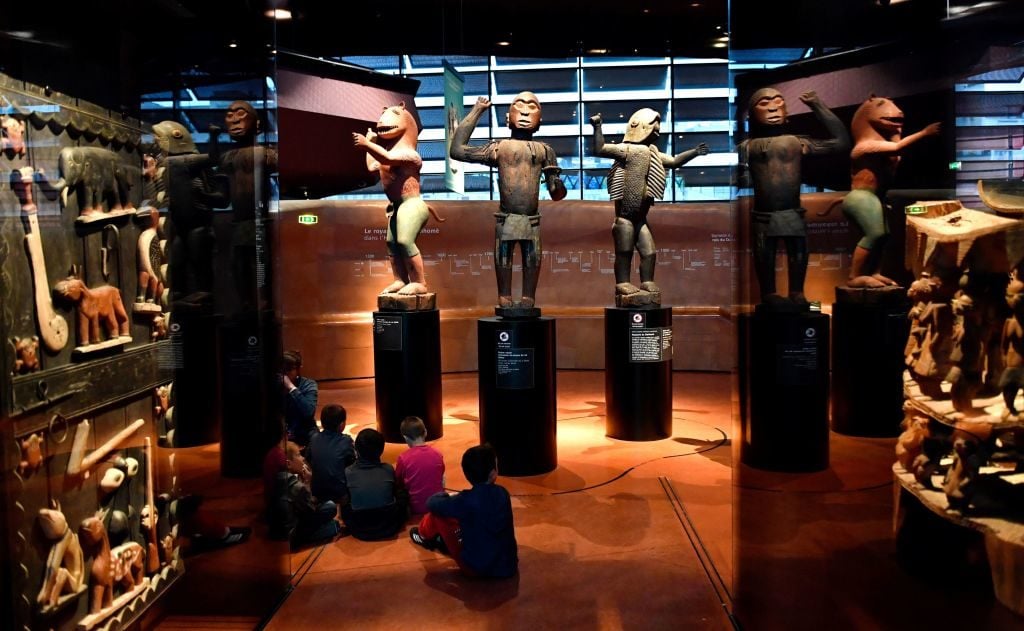Politics
France Has Returned 26 Objects Stolen From an Ancient Palace in Benin, Including a Throne, Altars, and Ornate Doors
The restitution of the objects is hoped to repair French relations with African nations.

The restitution of the objects is hoped to repair French relations with African nations.

Amah-Rose Abrams

French President Emmanuel Macron hosted Benin’s President Patrice Talon to officially sign an agreement returning 26 objects originally stolen by French forces from the Palace of Abomey. The objects were on display at the Quai Branly Museum in Paris until public pressure led to their return to Benin’s Ouidah Museum of History.
The 26 items from the kingdom of Dahomey are among 70,000 other objects in the Quai Branley’s collection that originally came from countries in Africa. The trove includes the throne of Behanzin, the last king of Dahomey, three totems, four ornate palace doors, several altars, and three warrior dance staffs.
The ceremony took place at the Élysée Palace, which released an official statement noting that the event “marks an important step in building a new relationship between France and Africa.”
This move is seen as an effort to improve France’s image in the eyes of Africans. National and international calls to return the objects culminated in 2020 when the National Assembly voted overwhelmingly in favor of returning these items, and others from Senegal. Both are former colonies and many French citizens trace their cultural heritage back to these countries.
Quai Branly is in the process of seeking “to identify works believed to have been taken through violence, without the owners’ consent, or as war booty or through the coercion of the colonial administration,” the director of the museum, Emmanuel Kasarhérou, told AFP.
Experts say that between 85 and 90 percent of the cultural heritage of Africa remains outside the continent, according to Le Monde, and that of the 90,000 African cultural objects in French institutions, 46,000 arrived in colonial times.
“Not all objects that are in European collections have been stolen, but what proportion were? Our objective is to find out,” said Kasarhérou.
The items will now make their way back to Benin where they will find a temporary home at the Ouidah Museum of History and go on a tour of the country before being housed at their original home, the royal palaces of Abomey, now a UNESCO World Heritage Site.
Benin is currently building a museum at the site slated for completion in 2026, aided by France which has financed the project with €35 million ($40 million) in loans and grants.